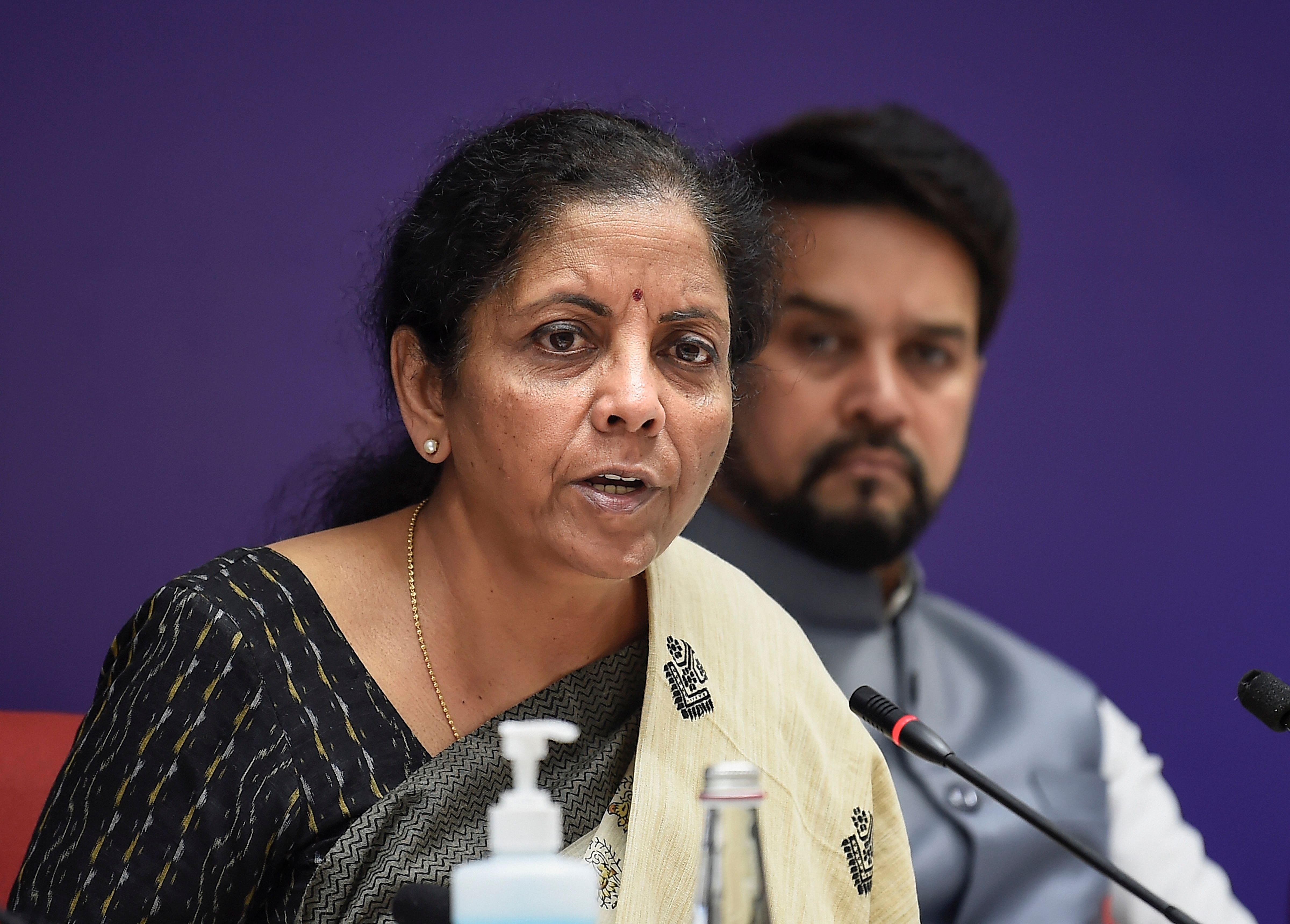
The Centre could not provide any immediate relief to states demanding their GST compensation dues, but asked them to raise loans of Rs 2.35 lakh crore to meet their requirements, which could be repaid to them through cess collection on sin and luxury goods in the next five years.
Finance Minister Nirmala Sitharaman said the loans could be made available to the states through a special window to be created by the Centre and the Reserve Bank of India (RBI) on reasonable rate of interest.
Briefing reporters after a five-hour marathon GST Council meeting with her states counterparts, Sitharaman said the Covid-hit economy could contract this year, limiting the Centre’s ability to pay to the states.
“The Centre is now saying that it is not in a position to pay GST compensation to states. Exactly four years ago, this is what the Trinamool had warned in Parliament,” TMC leader Derek O’ Brien said, immediately after the decision.
As per the Centre's calculation, the compensation requirement by states in the current fiscal would be Rs 3 lakh crore, of which Rs 65,000 crore is expected to be met from the cess levied in the GST regime. Hence, the total shortfall is estimated at Rs 2.35 lakh crore.
The states had demanded that the Centre resort to market borrowing and pay to them as it was duty-bound to compensate states for GST implementation losses for five years from 2017.
Contrary to that, the states, at the GST Council meeting, were given two options — either to borrow Rs 97,000 crore on account of GST losses or borrow the entire Rs 2.35 lakh crore, which, other than GST, included Covid-related losses. The states have been asked to come back to the Centre with their decision within seven days.
“While the options of borrowings remain to be discussed by states, issues surrounding mechanics of repayment, increase in rate of compensation cess and the period of levy remain unanswered, leaving the options ambiguous,” Shareen Gupta, Partner, J Sagar Associates, told DH.
The Centre is not even willing to pay half of the compensation dues. Instead of 31 states and UTs borrowing separately, the Centre should have borrowed and repaid through compensation cess, Chhattisgarh Commercial Tax Minister T S Singh Deo complained.
“The central government’s refusal to pay GST compensation to states is the biggest betrayal in the history of federalism in India,” Delhi Deputy Chief Minister Manish Sisodia said.
Compensation cess is paid to the states in lieu of giving up their powers to collect local taxes on goods and services, which was subsumed under the GST in 2017. The compensation is the difference between the actual revenue collected by the states and the projected revenue. The projected revenue is the revenue growth of 14% per pear for the states, where the base year is 2015-16.
The Centre has not paid compensation to states since April this year. The compensation amount for March was paid in July.
